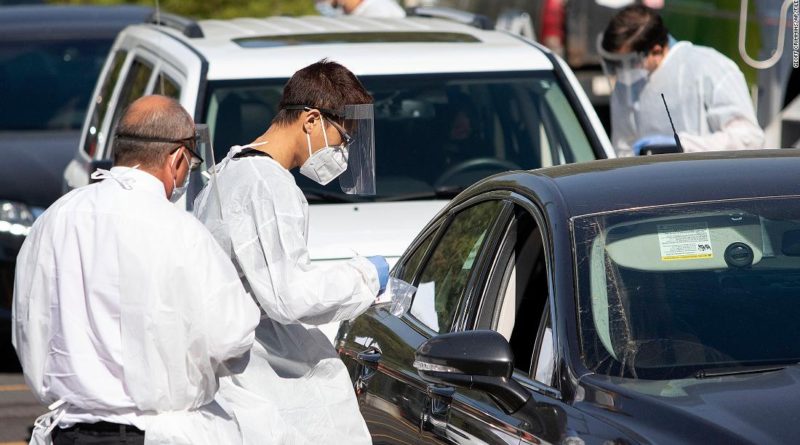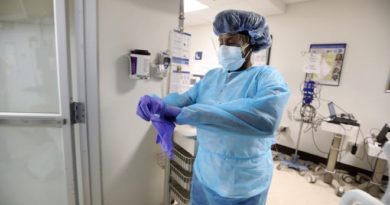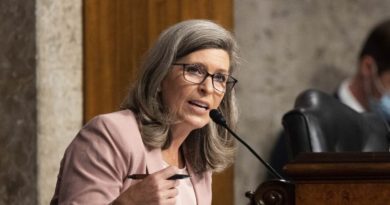US coronavirus: 21 states are reporting increased Covid-19 cases as experts warn of fall surge
As of Sunday, the number of new coronavirus cases has increased by at least 10% or more compared to the week before in 21 states, most of them in the West, according to a CNN analysis of data from Johns Hopkins University.
Cases are rising in Alabama, Alaska, Colorado, Idaho, Maine, Michigan, Minnesota, Montana, Nevada, New Jersey, New Mexico, North Carolina, North Dakota, Oregon, South Carolina, South Dakota, Texas, Utah, Washington state, Wisconsin and Wyoming.
Eighteen states were holding steady. Only 11 — Arizona, Louisiana, Tennessee, Georgia, Florida, Virginia, Maryland, Connecticut, Rhode Island, Vermont and New Hampshire — saw decreases of new cases of more than 10% compared to the week prior.
New York state on Saturday reported more than 1,000 new cases for the first time since early June, prompting Gov. Andrew Cuomo to warn residents about growing complacent going forward.
“It’s vital that New Yorkers continue to practice the basic behaviors that drive our ability to fight Covid-19 as we move into the fall and flu season,” Cuomo said in a statement. “Wearing masks, socially distancing and washing hands make a critical difference, as does the deliberate enforcement of state guidance by local governments.”
“You’re going to have to do a lot of things indoors out of necessity of the temperature, and I’m afraid, with that being the case, if we don’t carefully follow the guidelines … the masking, the distance, the crowds, that we may see another surge,” he said.
Miami mayor concerned as Florida drops restrictions on restaurant and bars
DeSantis signed an executive order on Friday evening allowing restaurants and bars to immediately begin operating at 100% capacity. He cited the economic hardships of not operating businesses at full capacity, according to the order.
The opportunity to fully reopen was welcomed by some restaurant and bar owners who said their businesses have suffered over the course of the coronavirus pandemic.
“We’ve had to pay the rent, the electric, all the bills,” Qualls said. “If it was too much longer, we wouldn’t be here.”
The governor’s order came as experts have warned of a potential surge in coronavirus cases across the country as fall and winter approach, driven by increased indoor activity due to falling temperatures and growing apathy toward the threat of the virus.
Up until now, mandating mask wearing in public and slowly reopening has helped to keep the coronavirus case count down in Miami, Suarez said. He’s concerned that the changes in the state are coming as flu season ramps up and schools prepare for in-person learning to begin in mid-October.
“We’ll see in the next couple of weeks whether (the governor’s) right about his perspective. But if he’s wrong about his perspective … it’s going to be very, very, very difficult for him and it’s going to be a very difficult time, because it’s in the middle of flu season,” Suarez said.
Normal could be a long way off — even with a vaccine
But it could still be a while until the US is back to normal, Fauci said.
“By the time you get enough people vaccinated … so that you can start thinking about maybe getting a little bit more towards normality, that very likely, as I and others have said, will be maybe the third quarter or so of 2021,” he told Bauchner. “Maybe even into the fourth quarter.”
Until then, Fauci and other leading experts have urged Americans to continue heeding safety guidelines and wearing masks, keeping a distance, avoid crowded places and washing their hands. The measures could be life-saving.
But Fauci sought to dispel worries of political interference, which he called the “big elephant in the room.”
“If you look at the standard process of how these things work, I think you could feel comfortable that it is really unlikely that that’s going to happen,” he told Bauchner, adding he trusts the scientists and commissioner of the FDA.
“You got to reassure people who have concern and skepticism there that these are professionals at the FDA that have been doing this their entire career,” he said. “They really know what they’re doing.”
CNN’s Christina Maxouris, Nicole Chavez, Jay Croft, Lauren Mascarenhas, Melissa Alonso, Shelby Lin Erdman, Andrea Kane and Konstantin Toropin contributed to this report.







